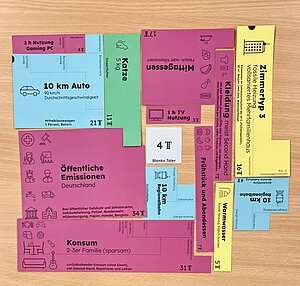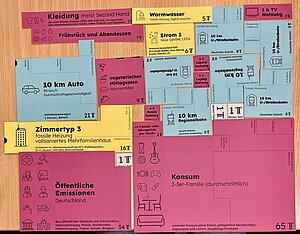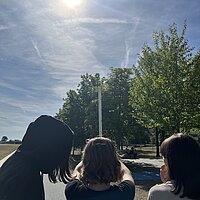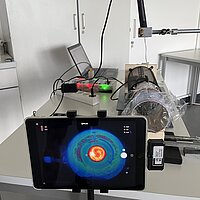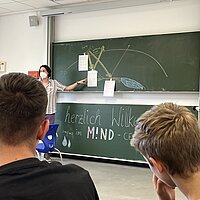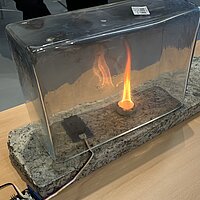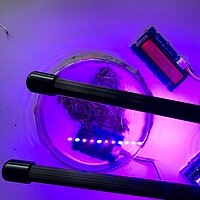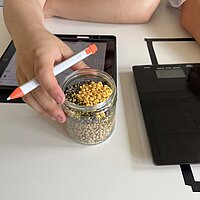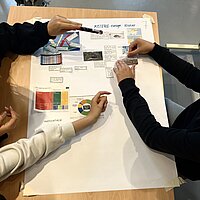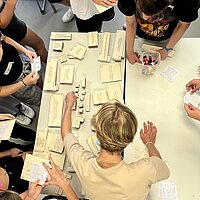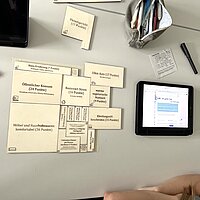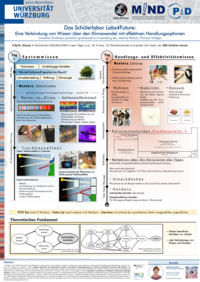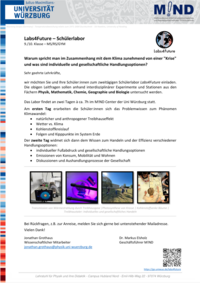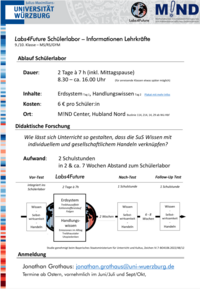Labs4Future
Labs4Future is an innovative, design-based research student laboratory that addresses the complexity of the climate crisis through multi-perspective, action-oriented climate education. The project engages secondary students in learning settings that aim to bridge the knowledge–action gap, while pre-service teachers gain experience in supervising inquiry-based climate learning.
At the heart of Labs4Future lies the Lessons4Action framework, which links four domains of climate knowledge with learning pathways informed by environmental psychology and research on the determinants of climate-related action.
What happens in Labs4Future?
Across two full days (approx. 6–7 hours each), pre-service teachers guide students through interconnected activities:
Understanding the climate system
Students investigate the carbon cycle, natural and anthropogenic greenhouse effect, tipping points, and local impacts of global warming through hands-on experiments and data analysis.
Connecting knowledge to responsibility and affectedness
The “Mystery” method and other structured tasks highlight how human activities drive climate change and how its consequences already affect their own region.
Exploring everyday emissions and societal structures
Using the Carbon Credits method, students visualise emissions from living, mobility, consumption, and food—revealing which actions are individually possible and which require systemic change.
Developing ideas for a low-emission future
In creative future-workshop formats, learners redesign their own cities or municipalities to explore realistic pathways of societal transformation.
Practising argumentation and climate communication
Students learn to recognise discourses of climate delay and practise constructive communication and debunking strategies in an interactive inner–outer circle debate.
Who can participate?
· Target group: usually 9th and 10th grade classes (age 14 to 16)
· Format: Individual laboratory days offered in winter/spring 2025/26
· Next implementation block: June/July 2026
· For further informations/to book a date:
anna.herold@uni-wuerzburg.de
Location:
M!ND Centre, University of Würzburg, Hubland North Campus
Research and evaluation
Labs4Future is embedded in a design-based research programme that evaluates both the Lessons4Action framework and the developed learning materials. A mixed-methods design examines changes in students’ knowledge, attitudes, perceived behavioural control, climate-related emotions, and self-reported actions, complemented by interviews and teacher feedback.
Published materials
Most Labs4Future materials are already available for educational use:
• Mystery “Greenhouse Effect, Tipping Points & Local Impacts”
A comprehensive mystery combining Earth system processes with human–climate interactions.
Quelle: NIU P
Download
• Carbon Credits
Visual area-based representations of emissions of an “average day”; handout and worksheets.
Quelle / Padlet: MNU, Kristallisatoinskeim, Padlet
Download
• City of the Future
A future-workshop format for exploring structural change in students’ own communities.
Quelle: Utopiedenken
Download:
• Among the Actions
An argumentation activity introducing climate-delay strategies and training effective counter-arguments through a rotating inner–outer circle debate.
NiU P
Download
The Labs4Future school lab was funded in 2022 as part of the BMBF's Catching up after Corona project. In the course of 2022, around 300 pupils visited the school lab.
By July 2024, around 1100 pupils had visited Labs4Future.
Carbon Credits
The Carbon Credits are a visual system for representing and comparing the greenhouse gas emissions of everyday actions. One Carbon Credit (CC) corresponds to 94 g CO₂e and is represented by a square tile (2.5 cm x 2.5 cm). By scaling the area of each tile to the emissions of specific behaviours, students gain an intuitive sense of where their personal daily emissions come from — and where structural change is necessary.
Combining the actions of an unrealistic minimalistic life, one can see: Even this is above the budget of 100 CC per person and day for a 1.5°C IPCC budget in 2030.
The set covers a broad range of behaviours in the domains of mobility, housing and heating, consumption, food, digital habits, and public emissions. Putting these tiles together, learners “puzzle” a typical day in their life and directly see:
· which of their behaviours contribute most to their emissions,
· which changes are realistically possible at an individual level (e.g. diet, room temperature, shopping habits), and
· which emissions can only be reduced through social and political transformation (e.g. electricity mix, heating systems, transport infrastructure).
The Carbon Credits have been used with over 1400 students in the Labs4Future programme and are inspired by the Lessons4Action framework, activating key psychological determinants of action such as social norms, personal attribution, and perceived behavioural control.
Handouts & working materials (Padlet)
All learning stations from the school laboratory are available as freely editable teaching materials. The Padlet also includes files for producing or laser-cutting the Carbon Credits.
We publish all materials under Creative Commons Licence CC BY-NC-SA 4.0.
https://padlet.com/jonathanGrothaus/treibhaustaler
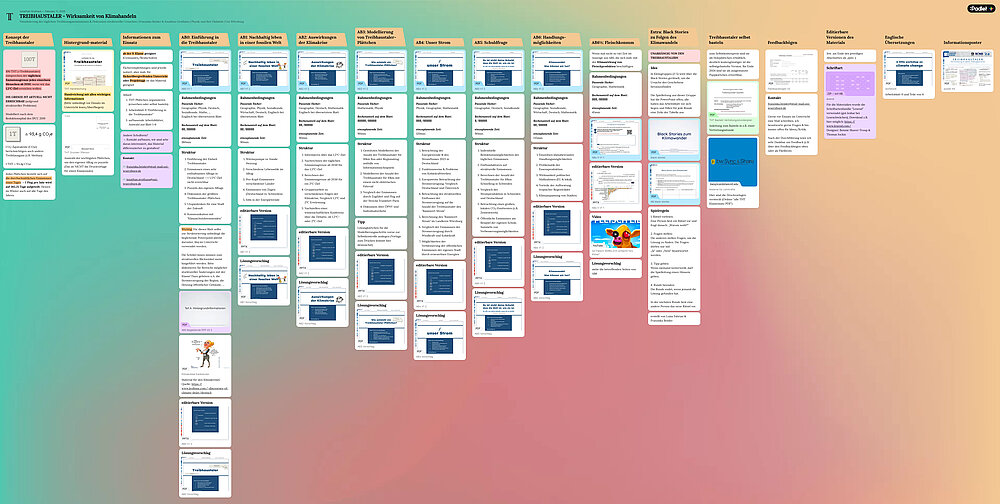
Availability
Version 4 (as of January 2025) is now available in colour and cardboard.
In a first nationwide distribution round, 200 class sets were produced in cooperation with the Pädagogisches Landesinstitut Rheinland-Pfalz.
Cost: approx. €135 per class set (suitable for up to 32 learners working in pairs).
